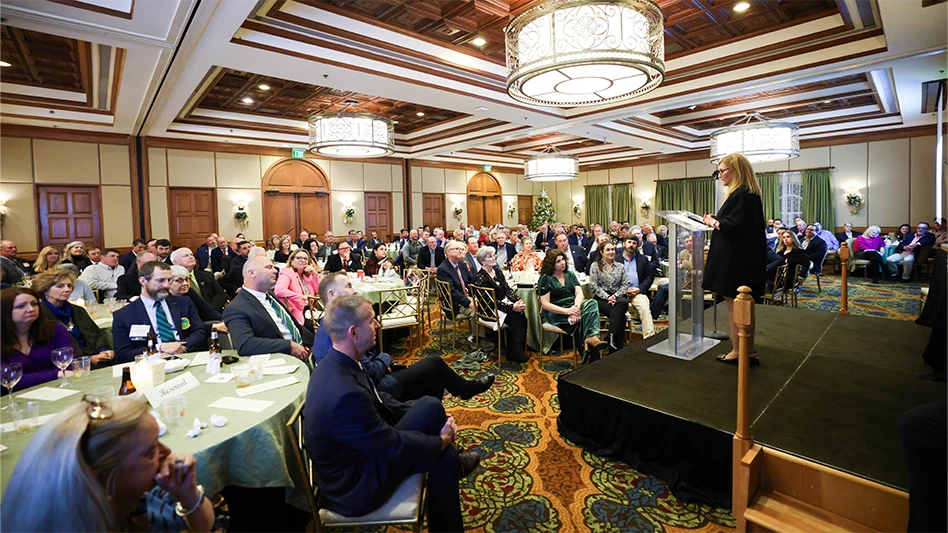I’ve had enough of this. I’m going to look for another job.”
Most likely, there have been golf course superintendents who’ve uttered these words. Some even went through with it. Many have not.
|
|
Mike Bavier Sr., CGCS, at Inverness (Ill.) Golf Club, says he never felt burned out during his career, and if he felt like that, it was a fleeting moment of wanting to do something else.
“It only lasted a week or month, usually during a hot, busy summer,” he says. “But then I realized I better stay. I don’t drag myself out of bed to come to work. I get out there, see the sun come up and cut grass. That makes it fun. We have the ability to make things green and make people happy. I tell people if they don’t like getting up in the morning, don’t take the job.”
But Mike Brown, CGCS, green superintendent at Starmount Forest Country Club in Greensboro, N.C., has experienced stress-related and boredom burnout. Brown, who’s been at Starmount for nine years and in the industry 16 years, experienced stress-related burnout when he was involved in rebuilding Starmount’s golf course during 1999 and 2000.
“Many people warned me it would be worse going through the first year after the course was done,” he says. “There were two years of high stress. I went from one crisis to another. I felt like I was never on top of a situation.
“But one thing I found was to take a step back and make sure there was enough time for Mike Brown,” he adds. “I played basketball, and some days, there’s nothing better than committing some hard fouls with friends.”
Brown’s boredom burnout came after the renovation was complete.
“I coasted for one year when things evened out,” he says. “Looking back at that hectic time, I realized I was never more alive, but I didn’t appreciate it then. I eventually settled into a routine and was unmotivated because everything ran itself. I felt like I wasn’t using my creative, energetic ideas.”
Dealing with golfers
Perhaps the biggest element of a superintendent’s job that can wear him down is dealing with golfers. Don Hearn, CGCS, who’s been at Vesper Country Club in Tyngsboro, Mass., for four years, says he’s been frustrated when dealing with the vocal minority.
“That gets me down,” he says. “Club memberships don’t appreciate the guys that work on the courses. They’re seen as an inconvenience. Most superintendents I speak to love the technical aspects of the job but are frustrated with the demands of the players. That makes going to work difficult. The demands now are much higher than when I first got into the business. It’s taken the desire out of a lot of superintendents.
“Players want X, and they don’t care what it costs,” he adds. “But money isn’t always the solution. It’s hard to reason with some golfers because they’re not interested in science – just the end result. It’s tough to win an argument with an ignorant person.”
A lot of pressure is put on superintendents when something doesn’t come out well, Hearn says.
“The demands of members and the way members act get the younger superintendents down, and it won’t change in their generation,” he says. “As soon as they get into the business, they’re finding this out. Twenty years ago, people were more respectful and less demanding. Young superintendents are experiencing a hard-ass attitude from members.”
Hearn, who’s been a superintendent for 35 years, reminds assistants the course isn’t theirs. He tells them not to get upset with the amount of money in the budget and to do the best job they can with the money they have to work with.
“Don’t think if you work 93 hours a week, the members will appreciate it because they don’t know,” he tells assistants. “They just know about the end product. Hard work pays off, but there’s a limit. Work smarter, not harder.”
Hearn says that wasn’t always his philosophy. That realization came when he was asked to leave The Weston (Mass.) Golf Club where he worked for many years prior to Vesper.
Riley Stottern, CGCS, vice president of agronomy at the 18-hole SunRiver Saint George (Utah) Golf Club and partner with Resort Golf Management, says there came a time when he, too, realized a project or golf course wasn’t his.
“Younger superintendents put a lot of time into a project or course, but it’s the owner’s and members’ course and project, not theirs,” he says. “Members don’t care how many hours you put in as long as the course looks good.”
Bavier says members travel all over the country to play golf and they come back with many ideas for their golf courses and superintendents have to explain why they do the things they do.
“One challenge is to address your critics,” he says. “If someone is complaining about the greens, the challenge is to talk to them and give your side of the story. You can’t ignore members. You need to talk to them face to face.”
Mixing it up
Breaking up the monotony of the job can help prevent burnout. The 62-year-old Stottern says he’s always had construction projects to work on in addition to maintaining golf courses. Stottern says he’s worked for owners who have wanted to improve their courses.
“When I’ve been at a course, that’s what I’ve wanted to do – large and small construction projects,” he says. “It’s peaked my interest. I don’t have the fire with just day-to-day maintenance. I’m always looking for that creativity. I’ve built four golf courses while being a superintendent.”
Bavier says being active in associations, coming up with new ideas, attending the Golf Industry Show and becoming certified keep superintendents sharp.
Brown agrees.
“I realized I was no longer a young 30-something up-and-comer,” Brown says. “I was established, so I became involved with the Carolinas GCSA. This year I’m immediate past president. I’m also chairman for the academic advisory council to the turfgrass program at Gilbert Technical College. I’m also looking to establish a First Tee program.”
The 44-year-old Brown believes personal growth should never end and wants to move to the next level of management.
“I want to become a general manager and carry the CCM and the CGCS designations,” he says. “I have always had an excellent rapport with the g.m., chairman and board. I work for good people who believe in that type of growth.”
The g.m. position at Starmount is open, and Brown says he’s one of the candidates.
“My role and responsibility might increase even if I don’t get the g.m. position,” he says.
Dole it out
Delegation is another way to help relieve stress and prevent burnout. Stottern, who’s been at SunRiver Saint George six years, suggests superintendents give some of their staff more responsibility. But he says there’s an abundance of good superintendents who stress about someone taking their job for less money.
“Build your staff with quality people so while you’re gone, things don’t fall apart,” he says.
Bavier says young superintendents are always challenging the older superintendents, asking them to do things differently.
“They’re keeping me on my toes, and they keep me thinking,” he says. “You have to be up with them, or they’ll take your job in some situations.”
The 62-year-old Bavier says he’ll phase himself out but won’t retire.
“At the end of this year, the assistant superintendent will take over for me, and he’ll run the show; but I will be here to help,” he says.
Brown says the secret to his success is that he surrounds himself with young, energetic types who want his job. His position involves an executive-style management.
“I get here at 8:30 or 9 a.m.,” he says. “I work more bankers-style hours because that’s what the club requires. My assistants get the crew moving in the morning. I plan the entire next day for everyone in a meeting with my assistants every day.”
Time off
Stottern, who’s been in the industry 36 years, says there’s a lot of burnout and many divorces in the industry because superintendents spend too much time at the golf course and forget the priorities in life. He says it’s good for people to take their full allotment of vacation.
“You have to take a weekend off,” he says. “I work long hours five days a week and take two days off, and the assistant takes two days off a week. I’ve seen guys work seven days a week, and they’re just fried because they take no time off at all.
“Superintendents should play golf at other people’s courses and look at someone else’s problems,” he adds. “Superintendents always look for the worst on their course and never look for the good. If you play your own course, it will stress you out even more.”
Bavier hasn’t taken any extended time off during the summer because the golf season in Illinois is short and he needs face time with members on Saturdays and Sundays, even though it’s a pain for his family. But in the winter, he travels.
“I look forward to getting away in the winter,” he says. “I’ve been able to travel a lot.”
Superintendents should pursue their other interests and be involved with their families, Bavier says.
“People always have to make a choice of the family or their job coming first,” he says. “Well, they all come first, but you need to give them equal time.”
Hearn says he never took a vacation, but has taken an extra few days off around the Golf Industry Show.
“I left tons of vacation on the table with Weston,” he says. “No one told me I couldn’t take the vacation. Now I take more time off during the off-season. In the summer, I work 5.5 days a week. More times than not I can do that unless there’s a tournament.”
Hearn tells the younger superintendents to take more time off.
“Many of the guys are working seven days a week and feel they can’t leave the golf course, and I understand that,” he says. “You should have an assistant that can run things. The course should still run if you’re sick or aren’t there. Share the load on weekends. Take time off. The club will still be there.”
Brown says his staff is large and sophisticated enough to allow him to take a vacation in August.
“If a guy is off one week, he is more valuable for two weeks than having a burned-out guy for three weeks,” he says.
Blow off steam
Bavier recommends speaking with neighboring superintendents to help blow off steam. He says he used to meet once or twice a week with other superintendents.
“Superintendents need to talk to their comrades,” he says. “Don’t be afraid to vent. Nothing is perfect.”
Brown blows off steam a few days after the Carolinas GCSA show by hanging out in smoky jazz clubs for four nights in New York with the Starmount g.m.
“It’s a great stress reliever because it’s so far from golf,” he says. GCN

Explore the February 2006 Issue
Check out more from this issue and find your next story to read.
Latest from Golf Course Industry
- Advanced Turf Solutions and The Aquatrols Company release soil surfactant
- Heritage Golf Group acquires North Carolina courses
- Editor’s notebook: Green Start Academy 2024
- USGA focuses on inclusion, sustainability in 2024
- Greens with Envy 65: Carolina on our mind
- Five Iron Golf expands into Minnesota
- Global sports group 54 invests in Turfgrass
- Hawaii's Mauna Kea Golf Course announces reopening






